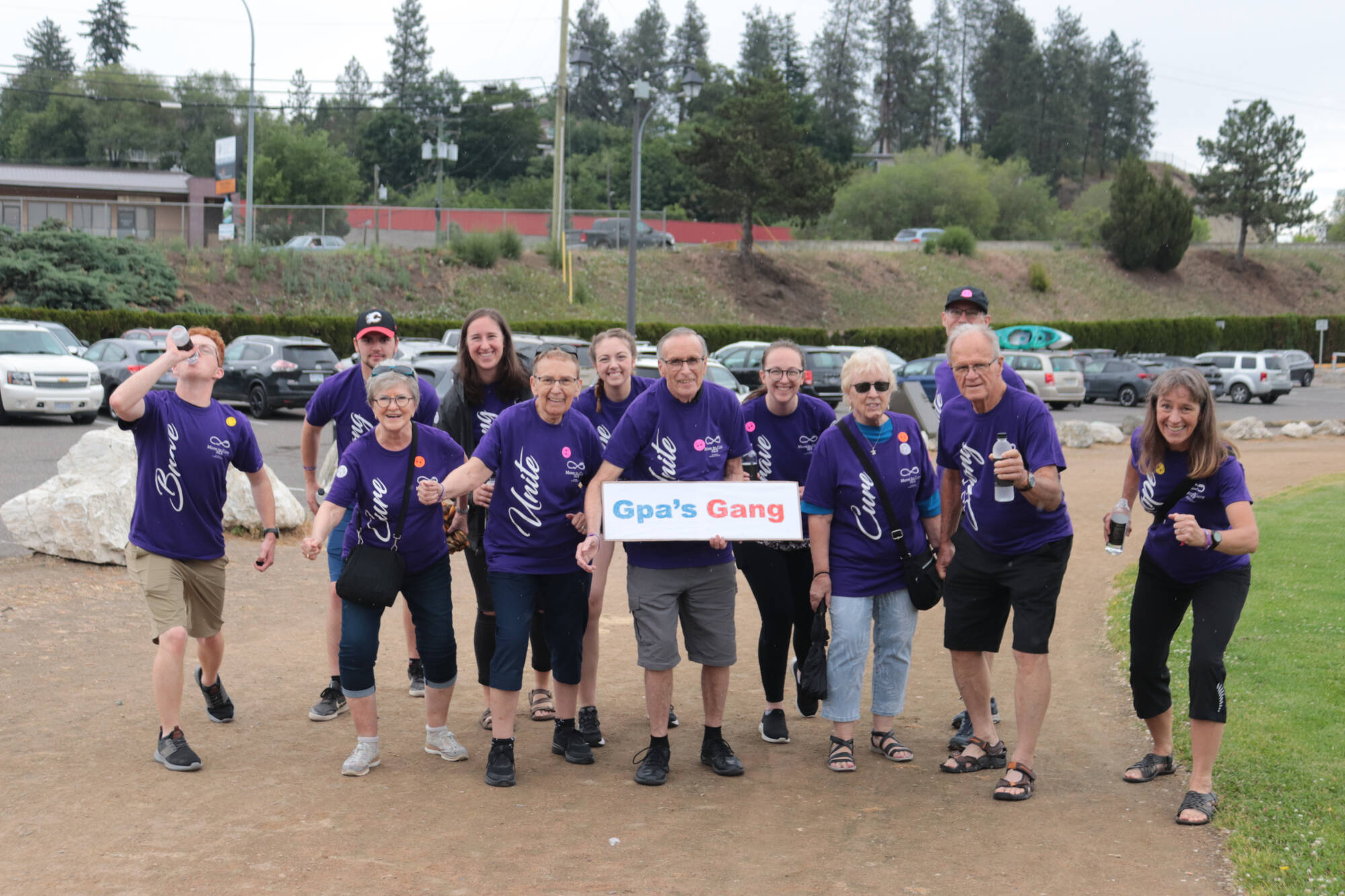It was a strong turnout for the ALS Society of B.C.’s Move to Cure ALS event in Vernon’s Polson Park Saturday, June 10.
Amyotrophic Lateral Sclerosis (ALS), commonly referred to as Lou Gehrig’s Disease, is a rare and fatal neurological disease that attacks a person’s motor neurons. It affects more than 3,000 people across Canada and close to 500 in B.C.
While there is no cure for ALS and every diagnosis is therefore terminal, a relatively new funding model in B.C. is attracting worldwide attention for its prospects for finding a cure.
Wendy Toyer, executive director for the ALS Society of B.C., was at the Vernon event Saturday. It’s the signature fundraising event for the society every year, and already $3 million has been raised for research, Toyer said.
Toyer said 60 per cent of funds raised around the province will go towards caring for people living with ALS, while 40 per cent will be funneled into research efforts.
On the research side, Project Hope has been in operation for the last three years at the University of British Columbia. Project Hope’s model is founded on the concept of putting as much funding as possible behind a single research lab, rather than spreading funds out across hundreds of smaller research efforts.
Toyer calls this the “COVID model,” referring to the efforts to create an effective vaccine which produced results in just one year.
“With COVID there was millions of dollars thrown into research to develop the COVID vaccine, and in one year we got a vaccine to cure a worldwide pandemic,” Toyer said. “We’ve been funding research for over 100 years for ALS and we’re not really that much closer other than some treatments that have minimal effect.”
“We need big money, we need big resources to get to that treatment. And we will.”
READ MORE: Move to Cure ALS at Vernon’s Polson Park
Supporting a single scientist with as much funds as possible will produce a cure for ALS faster, Toyer said.
She said in the past in Canada, scientists could apply for a research grant that would take 12 to 18 months to materialize, and they could receive about $100,000.
“We’re never going to get a cure that way,” Toyer said. “If we put millions and millions of dollars behind one lab, we’re probably going to get to an effective treatment way sooner than cutting the pie in so many little pieces.”
Project Hope is also transparent with how it spends donated money, which has earned the support of the B.C. government, which has already donated $5 million to the cause and committed to another $2 million this year.
“And the federal government is looking at this model saying this isn’t happening anywhere else in the world,” Toyer said. “We’re saying no, but the model that’s current is broken, it doesn’t work.”
Vernon, which typically raised about $10,000 at the annual event, had 66 people take part in the Move to Cure ALS event Saturday. That’s up from about 40 last year.
One of those “movers” was Donna Bartel, who has volunteered with the ALS Society for 22 years after her mother was diagnosed with ALS in 1999.
“It’s devastating,” she said. “You wonder how you can help that person that’s got it as a caregiver, how you can help them, how you can still continue on with your life. It takes everything away from that person, as well as everybody else around them.”
Bartel, who in the past was named the ALS Society’s volunteer of the year, said Saturday was a day filled with both good and bad emotions.
“Emotional in a teary way and emotional in a really happy way,” she said. “You’re giving so much hope, and that’s one thing is that a lot of ALS patients don’t have hope, and this gives them happiness knowing that there’s support and that we’re working hard to try and find a cure and to stop this.”
The ALS Society owns about 2,500 pieces of medical equipment that it loans to people diagnosed with ALS. The equipment ranges from a simple walker to a $40,000 power wheelchair. There are also devices that help people with ALS speak and eat after the disease has taken away their speech and hand movements.
The society also runs a kid’s camp for children to get together with others who have had a family member diagnosed with ALS.
To donate to the cause, visit alsbc.ca.
READ MORE: Tim Hortons serves smiles, cash to Vernon hospital foundation

